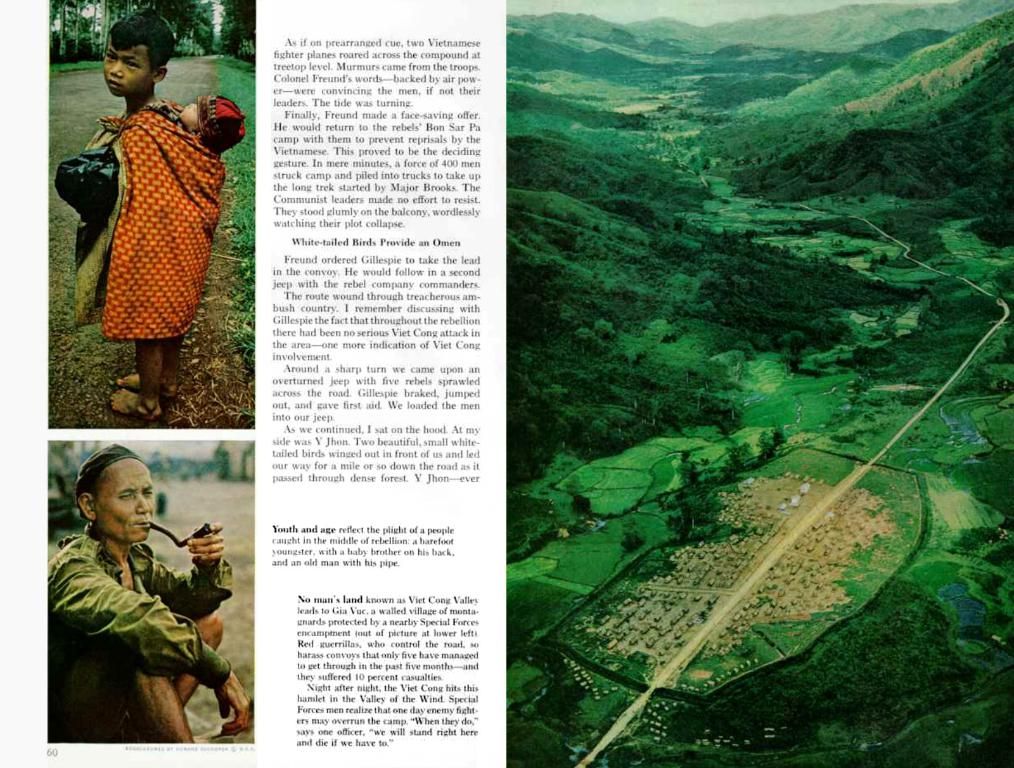"Hazel School's Continuation Struggles" - Revised Version
Transformed Article:
Roll the Credits: The Plight of Austria's Animation Industry
Hey there, partner!
The enchanting world of hand-drawn and computer-animated cinematography barely thrives in Austria. While foreign animated films from Asia, Australia, and the US grace Austrian theaters, the workload here is sporadic.
Arx Anima, Austria's sole animation studio producing feature films, can vouch for this. In 2011, ambitious duo Dunja Bernatzky and Kris Staber embarked on founding a studio in Vienna. The grueling process is evident in the production times. Compared to live-action films that take about three to six weeks to make, an animated film takes approximately two years.
Feathers Ruffled: Creators Strike Back
In 2019, Arx Anima successfully screened "Die Heinzels - Return of the Goblins" in theaters. In 2022, the sequel, "The Hare School – The Great Egg Theft," hit the screens. Both films held their own against Disney and Pixar in Austrian cinemas, with "The Hare School" being the most-watched film of its opening year. A whopping 150 folks labored full-time on "The Hare School" for two years. Given its success, a sequel was greenlit, following industry norms. The financing for a new "Hare School" had been promised by the Austrian cinema fund over two years ago from the OFI+ fund. Provided the condition that the submissions were "complete" and "on-time." However, "unlimited" in OFI+ meant that the funding volume could be expanded by the Ministry of Finance should the need arise. Unfortunately, this didn't happen during the government formation, and the new coalition abolished it.
Money Down the Hole
Trusting the automatic and "unlimited" funding, Arx Anima made substantial advancements, as many other producers did. Only to realize that, as Kris Staber put it, "the funding portal was shut down without any prior warning as part of a guideline change, and the money allocated for 2025 was spent on advancements for submissions from 2024."
Arx Anima bore the brunt of the clause stipulating that submissions had to be "complete and on-time." In animated films, a submission isn't complete until the script, individual character appearances, and artistic implementation are defined. The studio relied on previous funding promises. "The story was developed, and the number of characters was determined," explains Staber. "We also commissioned artists to create a teaser to attract co-producers."
A Heart-to-Heart with Kogler:The funding cuts proposed for Austria's film industry by the new federal government could spell doom for many companies, particularly Arx Anima and "The Hare School" project. "The upfront costs for our studio already amount to around 500,000 euros," Staber estimates. With the total budget of the Kinofilmförderung ÖFI+ set to decrease to 15.5 million euros for 2026, the already underserved animation film sector is now staring at extinction. "We are a niche production with little representation," says Kris Staber. "Celebrities can't make a public stand for us, making it difficult to reach responsible politicians," adds Dunja Bernatzky. "If the Austrian public is to attend the cinema more frequently, animation must be supported. Because through animation, young audiences can be cultivated for the Austrian cinema or are we to lose the youth to the North German synchronized Hollywood films?", muses Kris Staber. "But this genre also caters to adults." Without support, "The Hare School" may have to cease operations.
- The financial difficulties in Austria's animation industry are evident, as the Austrian cinema fund promised funding for a new "Hare School" sequel over two years ago, but the financing was not provided, despite the condition being met.
- The sudden closure of the funding portal without prior notice, as part of a guideline change, led to a significant financial loss for Arx Anima, a crucial Austrian studio in the business of movies-and-tv entertainment, leaving the future of their flagship project, "The Hare School," uncertain.




